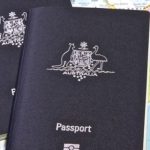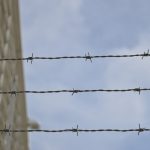Man Charged Under Carly’s Law

The federal parliament passed Carly’s Law in June of this year, and police have just used it for the first time.
Police in South Australia have brought charges against a convicted child-sex offender who is facing a string of fresh offences in that state.
What is Carly’s Law?
Carly’s law prescribes a maximum penalty of 10 years’ imprisonment for anyone who “does any act in preparation for doing, or planning to do, any of the following”:
- causing harm to a person under 16 years of age;
- engaging in sexual activity with a person under 16 years of age;
- procuring a person under 16 years of age to engage in sexual activity,
It was enacted in response to a long-term campaign by the family of 15-year old Carly Ryan, who was killed in 2007 by a man who created more than 200 fake online profiles to prey on underage girls.
The family pushed for a law that would give police more power to intervene before a predator displayed an intention to groom or procure by actively engaging children online.
The significant difference between Carly’s law and previous legislation is that the prosecution does not need to prove an intention to groom or harm a child – proof of any act precluding this, such as creating certain fake online profiles, may suffice.
Many feel the law goes too far, potentially opening the floodgates for the prosecution of those who create inaccurate online accounts for purposes other than luring children.
Police welcome new law
But Federal Justice Minister Michael Keenan disagrees, saying the law is vital for the protection of young people online.
“Carly’s Law shows zero tolerance to adults who prey on the most vulnerable in our community, our children,” Keenan said. “It gives police the power to act before a predator has the chance to harm a child.”
First prosecution
Police allege the Adelaide man lied about his age and gender in an attempt to groom children online.
He faces a total of 14 charges, including accessing, possessing and transmitting child exploitation material, along with breaching reporting obligations under state legislation, in addition to the Carly’s law offence.
Child offenders banned from travelling overseas
In the same month Carly’s Law was passed, the federal government announced the introduction of the ‘toughest laws in the world’ to stop Australian child sex offenders from travelling overseas.
The law amends the Passports Act and Criminal Code Act, and affects around 20,000 Australians who are on the Australian National Child Offender Register.
But there are concerns the laws unfairly affect thousands whose offences are on the lower end of the scale, and that it may lead to an influx in child sex offences committed here in Australia.
Police say they are alarmed by an increase in Australians directing the sexual abuse of children living overseas using live streaming services like Skype from computers here in Australia.
They say abusers are paying people in developing countries like Thailand and the Philippines to produce and direct sexual abuse there, which is broadcast over the internet using webcam, leaving little to no digital trail and making it difficult to detect and prosecute.








